Chris Wanstrath
description: co-founder of GitHub, a web-based hosting service for version control
9 results
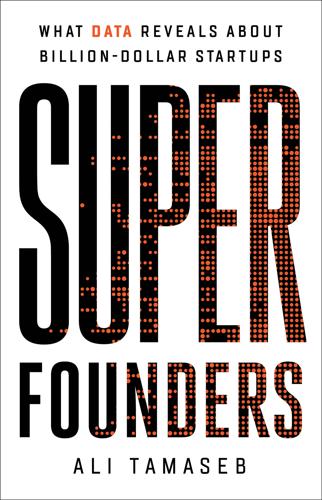
Super Founders: What Data Reveals About Billion-Dollar Startups
by
Ali Tamaseb
Published 14 Sep 2021
As Dubugras said, if you know a lot about what you’re talking about, they will take you seriously regardless of age. In the next chapter, we will look at the role that education plays in the success of billion-dollar startup founders. 2 MYTHS AROUND FOUNDERS’ EDUCATION ON DROPPING OUT It took only two years at the University of Cincinnati for Chris Wanstrath to get bored with school. He’d been working toward an English degree, but he spent more time coding than going to class. Wanstrath loved video games, and a few computer programming classes in college gave him enough of a tool kit to start learning how to code games himself. By his sophomore year, he’d gotten pretty good.
…
I very purposefully wanted to work on a side project that, unlike Gravatar, if it became successful, would be something that I could work on full-time and have it pay for me to do that. So initially GitHub was a side project. It was just something that I started working on. I knew some other Ruby programmers through a user’s group that we put together, and we would meet every two weeks at someone’s office, and there’d be some technical talk for maybe an hour. I got to know Chris Wanstrath [the other co-founder of GitHub] through that group, and I’d always admired his work. He was doing consulting and had put out a bunch of open-source libraries that a lot of people used. I thought that was pretty awesome. I thought it would be pretty cool to work on something with him. And so after one of these meetups I sat him down and I showed him what I was working on.
…
Angela Gratela, “Meet the 18 Original Founders of Alibaba,” E27, October 19, 2018, https://e27.co/meet-18-original-founders-alibaba-20181019/. CHAPTER 2: MYTHS AROUND FOUNDERS’ EDUCATION 1. Tom Huddleston, “How This 33-Year-Old College Dropout Co-Founded GitHub, Which Just Sold to Microsoft for $7.5 Billion,” CNBC, June 4, 2018, www.cnbc.com/2018/06/04/chris-wanstrath-co-founded-github-which-microsoft-bought-for-billions.html. 2. “Number of People with Master’s and Doctoral Degrees Doubles Since 2000,” United States Census Bureau, February 2019, www.census.gov/library/stories/2019/02/number-of-people-with-masters-and-phd-degrees-double-since-2000.html. CHAPTER 3: MYTHS AROUND FOUNDERS’ WORK EXPERIENCE 1.
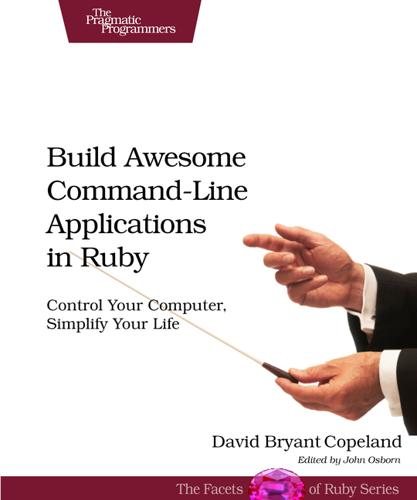
Build Awesome Command-Line Applications in Ruby: Control Your Computer, Simplify Your Life
by
David B. Copeland
Published 6 Apr 2012
They include Paul Barry, Daniel Bretoi, Trevor Burnham, Ian Dees, Avdi Grimm, Wynn Netherland, Staffan Nöteberg, Noel Rappin, Eric Sendlebach, Christopher Sexton, and Matt Wynne. Finally, I’d like to thank the many programmers who’ve contributed to the open source projects I mention in the book, including, but probably not limited to, the following: Aslak Hellesøy, TJ Holowaychuk, Ara Howard, Yehuda Katz, James Mead, William Morgan, Ryan Tomayko, Chris Wanstrath, and, of course Yukihiro “Matz” Matsumoto, who created such a wonderful language in which to write command-line apps. With all that being said, let’s get down to business and start making our command-line apps a lot more awesome! Footnotes [1] http://pragprog.com/book/dccar/build-awesome-command-line-applications-in-ruby [2] http://gembundler.com [3] http://beginrescueend.com [4] http://www.cygwin.com/ [5] http://www.mingw.org/wiki/MSYS [6] http://rubyinstaller.org/ [7] http://rubykoans.com/ [8] http://en.wikipedia.org/wiki/Cowboy_coding [9] http://pragprog.com/titles/dccar [10] http://forums.pragprog.com/forums/190 Copyright © 2012, The Pragmatic Bookshelf.
…
Even if man could access your app’s files, creating a man page is no small feat; it requires using the nroff[20] format, which is cumbersome to use for writing documentation. Fortunately, the Ruby ecosystem of open source libraries has us covered. gem-man,[21] a plug-in to RubyGems created by GitHub’s Chris Wanstrath, allows users to access man pages bundled inside a gem via the gem man command. ronn [22] is a Ruby app that allows us to create man pages in plain text, without having to learn nroff. We can use these two tools together to create a manual page that we can easily distribute with our app and that will be easily accessible to our users.
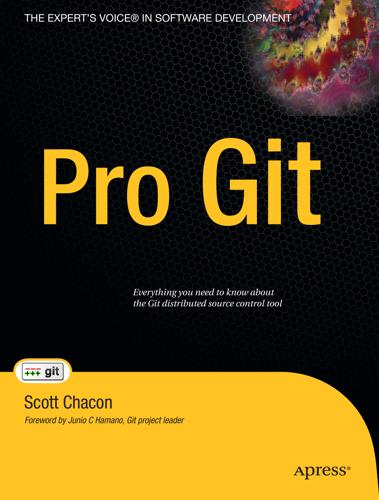
Pro Git
by
Scott Chacon
Published 17 Aug 2009
(In Git versions 1.6.1 and later, you can also use git diff --staged, which may be easier to remember.) This command compares your staged changes to your last commit: $ git diff --cached diff --git a/README b/README new file mode 100644 index 0000000..03902a1 --- /dev/null +++ b/README2 @@ -0,0 +1,5 @@ +grit + by Tom Preston-Werner, Chris Wanstrath + http://github.com/mojombo/grit + +Grit is a Ruby library for extracting information from a Git repository It’s important to note that git diff by itself doesn’t show all changes made since your last commit — only changes that are still unstaged. This can be confusing, because if you’ve staged all of your changes, git diff will give you no output.
…
A nice way of quickly getting a sort of changelog of what has been added to your project since your last release or e-mail is to use the git shortlog command. It summarizes all the commits in the range you give it; for example, the following gives you a summary of all the commits since your last release, if your last release was named v1.0.1: $ git shortlog --no-merges master --not v1.0.1 Chris Wanstrath (8): Add support for annotated tags to Grit::Tag Add packed-refs annotated tag support. Add Grit::Commit#to_patch Update version and History.txt Remove stray `puts` Make ls_tree ignore nils Tom Preston-Werner (4): fix dates in history dynamic version method Version bump to 1.0.2 Regenerated gemspec for version 1.0.2 You get a clean summary of all the commits since v1.0.1, grouped by author, that you can e-mail to your list.
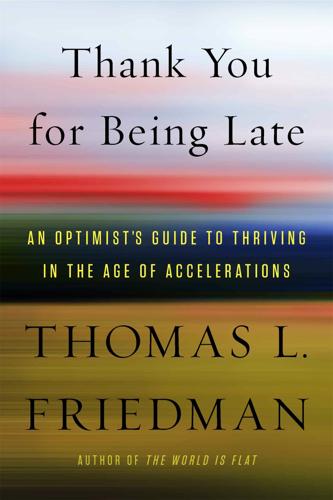
Thank You for Being Late: An Optimist's Guide to Thriving in the Age of Accelerations
by
Thomas L. Friedman
Published 22 Nov 2016
Now imagine that the best programmers in the world from everywhere—either working for companies or just looking for a little recognition—are all doing the same thing. You end up with a virtuous cycle for the rapid learning and improving of software programs that drives innovation faster and faster. Originally founded by three grade-A geeks—Tom Preston-Werner, Chris Wanstrath, and P. J. Hyett—GitHub is now the world’s largest code host. Since I could not visit any major company today without finding programmers using the GitHub platform to collaborate, I decided I had to visit the source of so much source code at its San Francisco headquarters. By coincidence, I had just interviewed President Barack Obama in the Oval Office about Iran a week earlier.
…
By coincidence, I had just interviewed President Barack Obama in the Oval Office about Iran a week earlier. I say that only because the visitor lobby at GitHub is an exact replica of the Oval Office, right down to the carpet! They like to make their guests feel special. My host, GitHub’s CEO, Chris Wanstrath, began by telling me how the “Git” got into GitHub. Git, he explained, is a “distributed version control system” that was invented in 2005 by Linus Torvalds, one of the great and somewhat unsung innovators of our time. Torvalds is the open-source evangelist who created Linux, the first open-source operating system that competed head-to-head with Microsoft Windows.
…
At Walmart, Doug McMillon, Neil Ashe, Dan Toporek, and their colleagues showed me in exacting detail every digital interaction that happened behind the scenes when I tried to buy a television from Walmart’s mobile app. They also introduced me to the best ribs in Arkansas. I am deeply indebted to Doug Cutting from Hadoop and Chris Wanstrath from GitHub for patiently walking me through the evolution of both of their companies and ensuring that I got every fact right. It took multiple visits and follow-ups with both for me to fully understand what they had each helped to create, and I am extremely grateful for their tutoring. Qualcomm’s cofounder Irwin Jacobs did the same on my two visits to his campus.
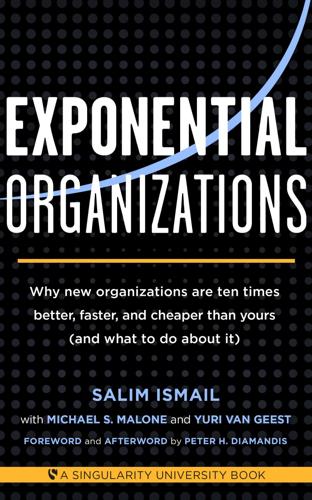
Exponential Organizations: Why New Organizations Are Ten Times Better, Faster, and Cheaper Than Yours (And What to Do About It)
by
Salim Ismail
and
Yuri van Geest
Published 17 Oct 2014
Celebrated—even recognized—or not, open source software runs the Internet (and thus the world) today. After that extraordinary initial success, the open source movement settled into a stable, stratified environment over much the last decade, with the community producing little in the way of new innovation. Everything changed in 2008, however, when Chris Wanstrath, P.J. Hyett and Tom Preston-Werner (all out of Paul Graham’s Y Combinator entrepreneurial incubator program) founded a company called GitHub. An open source coding and collaboration tool and platform, GitHub has utterly transformed the open source environment. It is a social network for programmers in which people and their collaborations are central, rather than just the code itself.
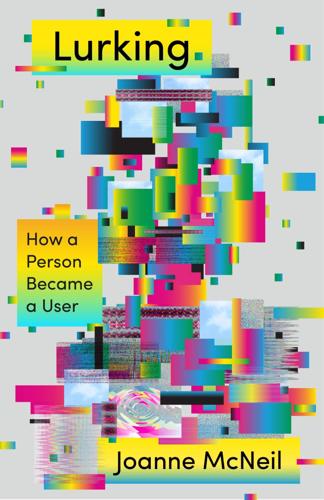
Lurking: How a Person Became a User
by
Joanne McNeil
Published 25 Feb 2020
For more context, in 2014, Astra Taylor and I co-wrote an essay for The Baffler on sexism and Silicon Valley, “The Dads of Tech.” The TechCrunch report “Julie Ann Horvath Describes Sexism and Intimidation Behind Her GitHub Exit” was authored by Alex Wilhelm and Alexia Tsotsis (March 18, 2014). GitHub hired a third-party investigator to look into Horvath’s allegations. Chris Wanstrath published the findings on the company blog on April 28, 2014 (“Follow up to the investigation results”). The investigator found that “Tom Preston-Werner in his capacity as GitHub’s CEO acted inappropriately, including confrontational conduct, disregard of workplace complaints, insensitivity to the impact of his spouse’s presence in the workplace, and failure to enforce an agreement that his spouse should not work in the office.”
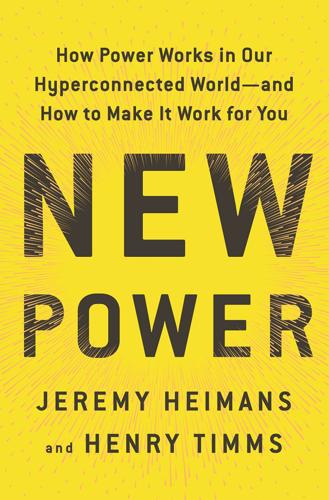
New Power: How Power Works in Our Hyperconnected World--And How to Make It Work for You
by
Jeremy Heimans
and
Henry Timms
Published 2 Apr 2018
Howard, Rick Ifland, Verity Jones, Ben Keesey, Jess Kutch, Joseph Kvedar, Sheila Lirio Marcelo, Nancy Lublin, Brian Lynch, Benjamin Mako Hill, Natalia Mehlman Petrzela, Michelle Michael, Geoff Mulligan, Nehkara Nikki Newhouse, Rainer Nõlvak, Alex Pentland, John Pinette, Shael Polakow-Suransky, Ai-jen Poo, Katie Radford, Thomas Reese, Jay Rogers, Robin Sather, Nathan Schneider, Michael Silberman, James Slezak, Lara Stein, Courtnie Swearingen, Madelon van Tilburg, Eric Topol, Chris Wanstrath, David Weinberger, Paul Wicks, Rob Wijnberg, David Willey. Most of all, we want to thank the many people we have never met who have already engaged with this thinking, improved it, and used it in their own work to make more people more powerful. * * * — Henry wants to thank: My colleagues and the board of directors at the 92nd Street Y for their support and encouragement throughout the process.
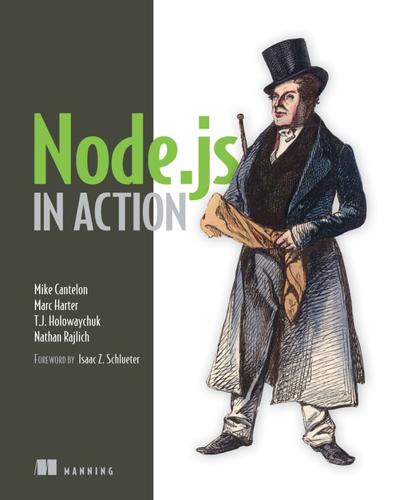
Node.js in Action
by
Mike Cantelon
,
Marc Harter
,
Tj Holowaychuk
and
Nathan Rajlich
Published 27 Jul 2013
Using the Mustache templating language with Hogan Hogan.js (https://github.com/twitter/hogan.js) is a template engine that was created by Twitter for its templating needs. Hogan is an implementation of the popular Mustache (http://mustache.github.com/) template language standard, which was created by GitHub’s Chris Wanstrath. Mustache takes a minimalist approach to templating. Unlike EJS, the Mustache standard deliberately doesn’t include conditional logic, nor any built-in content-filtering capabilities other than escaping content to prevent XSS attacks. Mustache advocates that template code should be kept as simple as possible.
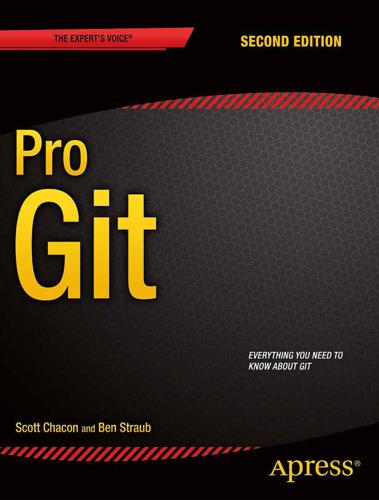
Pro Git
by
Scott Chacon
and
Ben Straub
Published 12 Nov 2014
A nice way of quickly getting a sort of changelog of what has been added to your project since your last release or e-mail is to use the git shortlog command. It summarizes all the commits in the range you give it; for example, the following gives you a summary of all the commits since your last release, if your last release was named v1.0.1: $ git shortlog --no-merges master --not v1.0.1 Chris Wanstrath (8): Add support for annotated tags to Grit::Tag Add packed-refs annotated tag support. Add Grit::Commit#to_patch Update version and History.txt Remove stray `puts` Make ls_tree ignore nils Tom Preston-Werner (4): fix dates in history dynamic version method Version bump to 1.0.2 Regenerated gemspec for version 1.0.2 You get a clean summary of all the commits since v1.0.1, grouped by author, that you can e-mail to your list.